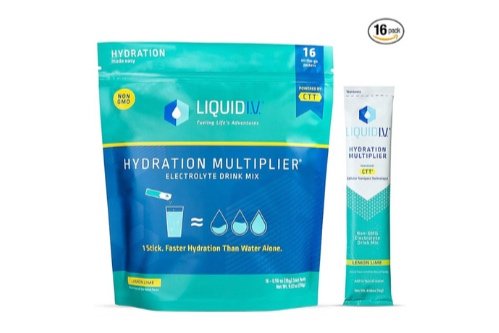Carnivore Diet and Hydration Strategies
Essential Tips for Optimal Fluid Intake
The carnivore diet, an eating regimen centered around animal-based products, has been an area of growing interest for its purported benefits relating to weight loss, mental clarity, and simplicity of food choices. This dietary approach excludes plant foods, relying instead on meat, fish, eggs, and certain dairy products as its foundation. With its focus on high-protein and high-fat consumption, the carnivore diet has sparked discussions regarding its nutritional completeness, particularly concerning the aspect of hydration.
Hydration plays a pivotal role in overall health, affecting functions such as nutrient transport, body temperature regulation, and waste elimination. Traditionally, diets rich in fruits and vegetables provide a significant amount of water intake due to the inherent high water content of these foods. In contrast, the carnivore diet presents a unique challenge since it lacks these hydrating plant-based sources. It is therefore vital for individuals on a carnivore diet to adopt intentional strategies to maintain adequate hydration.
To compensate for the absence of water-rich plant foods, those following the carnivore diet must be acutely aware of their fluid intake. Ensuring a sufficient consumption of water and other hydrating fluids becomes essential to avoid dehydration, a condition that could potentially offset the benefits experienced from this dietary pattern. The task is to navigate the fine balance between the diet's restrictions and the body's needs, which is crucial for sustaining health and optimizing the diet's outcomes.
Essentials of the Carnivore Diet
The Carnivore Diet revolves around consuming primarily meat and other animal products, emphasizing their integral role in supporting overall health.
Overview of Carnivore Diet
The Carnivore Diet is characterized by the exclusive consumption of animal-based foods. It primarily includes:
All types of meat (beef, chicken, pork)
Seafood (fish, shellfish)
Eggs
Limited animal products such as certain dairies (butter, certain hard cheeses)
Excluded from the diet are plant-based foods, carbs, and sugars.
Key Benefits for Overall Health
Those following the Carnivore Diet often report improvements in a range of health areas. Some benefits that have been observed include:
Enhanced digestive health due to the elimination of plant-based foods that can cause inflammation or discomfort.
Potential weight loss due to high protein content, which can increase satiety and reduce overall calorie intake.
Simplified meal planning as the range of food choices is greatly restricted.
Role of Meat and Animal Products
Meat and animal products are the foundation of the Carnivore Diet. They provide essential nutrients that can be more easily absorbed from animal sources:
Proteins and Amino Acids: Crucial for muscle repair and growth.
Fats: Saturated and mono/polyunsaturated fats from animal sources can support brain health and energy levels.
Vitamins and Minerals: Particularly vitamin B12, iron, zinc, and calcium, which are vital for bone health, blood formation, and neurological functioning.
Hydration Strategies on a Carnivore Diet
When adopting a carnivore diet, it is essential to prioritize hydration due to the absence of water-rich fruits and vegetables from the dietary intake.
Importance of Water Intake
They must consume a sufficient amount of water daily to compensate for the lack of natural water intake from food. The primary source of nourishment on a carnivore diet comes from animal products which have a lower water content compared to plant-based foods. Consequently, individuals following this diet should be conscientious about their water intake to maintain hydration levels.
Recommended Daily Water Intake:
Men: 3.7 liters
Women: 2.7 liters
Identifying and Managing Dehydration
Recognizing the signs of dehydration is crucial for individuals on a carnivore diet. Symptoms such as dark-colored urine, dry mouth, increased thirst, and fatigue signal the need for immediate hydration. They should manage dehydration by increasing water consumption and may consider adding electrolyte supplements if needed, as electrolytes are vital for retaining water and preventing dehydration. Regular monitoring can help avoid the complications associated with dehydration and ensure optimal functioning of the body.
Electrolyte Management
Electrolytes are critical for maintaining hydration on a carnivore diet. They regulate nerve and muscle function, hydrate the body, balance blood acidity and pressure, and help rebuild damaged tissue.
Understanding Electrolyte Balance
On a carnivore diet, one must ensure they maintain an appropriate electrolyte balance as the intake of fruits and vegetables is typically non-existent. The primary electrolytes include sodium, potassium, and magnesium. When these minerals dissolve in fluids, they become capable of conducting electricity, which is essential for many bodily functions.
Sodium and Salt Intake
Sodium is central to electrolyte management on a carnivore diet. Consuming an adequate amount of salt is essential, as it comprises sodium chloride. Different types of salt, such as sea salt, can provide trace minerals in addition to sodium. The following table presents suitable sources of sodium:
Sea Salt:
Notes: Contains trace minerals in addition to sodium, which may offer a broader spectrum of nutrients compared to refined table salt.
Bone Broth:
Notes: Naturally rich in sodium and other minerals like calcium, magnesium, and potassium, making it a nutritious option for electrolyte replenishment.
Organ Meats:
Notes: Some organ meats, such as liver, have a natural sodium content and are also rich in other essential nutrients like vitamin A, iron, and copper.
Potassium and Magnesium Sources
One must intentionally seek out sources of potassium and magnesium while on a carnivore diet. Potassium is vital for cardiovascular health and can be found in meats, such as fish and chicken. For magnesium, which supports muscle and nerve functions, turn to animal-based foods like fish and certain organ meats. Remember that maintaining a balance between sodium and potassium is crucial for electrolyte homeostasis.
Here is a list of carnivore-friendly foods rich in potassium and magnesium:
Fish (potassium and magnesium)
Chicken (potassium)
Organ meats (potassium and sodium)
Bone broth (magnesium)
Integrating these foods into the diet can help ensure appropriate levels of these key electrolytes.
Digestive Health on a Carnivore Diet
The carnivore diet, with its exclusive focus on animal products, presents unique considerations for digestive health. Ensuring proper gut health and managing digestion are pivotal for individuals following this dietary pattern.
Gut Health and Nutrition
The carnivore diet eliminates plant-based foods, which are traditional sources of fiber and nutrients that support a healthy digestive system. However, proponents suggest that the diet may improve gut health by removing potential inflammatory agents found in certain plant foods. This diet emphasizes nutrient absorption from animal products, which are rich in proteins and fats that the body can readily assimilate. It's important to monitor one's gut health, as a lack of dietary variety might affect the balance of gut bacteria, which are essential for digestion and overall wellbeing.
Managing Constipation and Digestion
Constipation can occur on a carnivore diet due to the absence of dietary fiber. To manage constipation and maintain digestion, individuals may need to:
Increase water intake: Adequate hydration is critical for preventing constipation.
Consume different types of animal proteins: Including a variety of meats, such as fish and chicken, can provide different nutrients and fats that may aid digestion.
Regularly monitor bowel movements to ensure that the diet doesn't negatively impact digestive comfort.
By focusing on these strategies, one may continue to support a functional digestive tract while adhering to the dietary restrictions of a carnivore diet.
Impacts on Bodily Functions
The carnivore diet, focusing on animal products, affects hydration and in turn influences kidney and muscle/nerve functions. It is essential to monitor these changes to ensure bodily functions remain optimal.
Kidney Function and Urine Color
Maintaining proper hydration on a carnivore diet is vital for kidney health. The kidneys filter waste products from the blood and regulate fluid balance. Insufficient hydration can lead to darker urine color, indicating concentrated urine and increased work for the kidneys. This could potentially elevate the risk of kidney stones. It's important that individuals on this diet monitor their urine color as a gauge for hydration, aiming for pale straw-colored urine as a sign of proper hydration.
Muscle and Nerve Function
Muscle contractions and nerve function are heavily dependent on electrolyte balance. A diet high in protein and low in carbohydrates, as found in a carnivore diet, can shift electrolyte levels, especially sodium and potassium. These shifts may manifest in symptoms such as muscle cramps or palpitations. Individuals should be aware that adequate hydration helps in maintaining electrolyte balance, facilitating normal muscle and nerve function.
Duration-Tailored Hydration Approaches
Effective hydration strategies are crucial for those on a carnivore diet, where fluid balance may be affected due to high protein intake. These approaches must be tailored to the duration of the diet and individual needs.
Short-Term Hydration Practices
In the initial stages of a carnivore diet, individuals may experience increased fluid loss as the body adapts to a higher protein intake. Short-term hydration practices include:
Monitoring daily water intake: Ensuring at least 2-3 liters of water per day to compensate for the diuretic effect of increased protein consumption.
Electrolyte balance: Paying close attention to electrolytes, especially sodium, which may require supplementation due to the absence of fruits and vegetables in the diet.
Long-term Fluid Balance
Maintaining long-term fluid balance is key to preventing dehydration and related health issues over time. This includes:
Regular hydration assessments: Checking urine color and volume can provide immediate feedback on hydration status.
Adjustment of fluid intake: Fluid needs may increase with activity level and environmental factors, necessitating a tailored approach to daily water consumption.
Foods and Supplements
Proper hydration on a carnivore diet involves more than just water intake; it includes the strategic inclusion of certain hydrating foods and supplements. A focus on bone broth and fats, along with obtaining electrolytes through food, is crucial for maintaining electrolyte balance and hydration.
Inclusion of Bone Broth and Fats
Bone broth is a staple in zero-carb diets due to its nutrient density and ability to provide critical electrolytes like sodium. It supports hydration and plays a vital role in digestive health. Fats, particularly those rich in saturated fat such as butter and lard, provide necessary calories and help the body absorb fat-soluble vitamins. When incorporating oils, opt for sources such as olive oil that contribute to healthy fat intake.
Hydrating Foods and Fats: Benefits
Benefits: Rich in electrolytes, supports digestion, and can contribute to hydration due to its liquid content.
Butter:
Benefits: High in saturated fats, which can aid in the absorption of fat-soluble vitamins like A, D, E, and K.
Olive Oil:
Benefits: Contains healthy monounsaturated fats, which are beneficial for heart health and overall well-being.
Eggs:
Benefits: Provide hydration through their water content, essential fats, and a complete profile of amino acids from proteins.
Dairy:
Benefits: Offers hydration, especially from products like milk, as well as fats, proteins, and additional nutrients like calcium and vitamin D.
Electrolytes Through Foods
A carnivore diet necessitates the consumption of foods high in electrolytes to prevent imbalances. Alongside bone broth, organ meats are a powerhouse for nutrients and electrolytes. They ensure proper muscle and nerve function. Beef, as a primary source of protein and fat, also contains potassium and magnesium, aiding in electrolyte balance. Eggs and dairy, both integral to the carnivore diet, further supply necessary electrolytes and hydration.
Electrolyte-Rich Foods and Key Electrolytes Provided
Organ Meats:
Key Electrolytes: Sodium, potassium, magnesium
Beef:
Key Electrolytes: Potassium, magnesium
Eggs:
Key Electrolytes: Sodium, potassium
Dairy:
Key Electrolytes: Calcium, potassium, sodium
Inclusion of these foods and supplements will aid individuals in maintaining adequate hydration levels while adhering to the stringent requirements of a carnivore diet.
Nutritional Quality and Sources
The carnivore diet emphasizes meat consumption, making the quality of meat and its processing crucial for nutrient content. The diet excludes carbohydrates while focusing on protein and essential minerals.
Quality of Meat Products
Grass-fed and Organic: Meat quality is influenced by the diet and raising conditions of the animal. Grass-fed, organic meats are often superior regarding nutrient profiles, as they typically contain higher levels of omega-3 fatty acids and certain minerals, which are essential for maintaining a healthy diet.
Wild-caught Options: Similarly, wild-caught fish and game offer diverse nutrient compositions, often richer in some vitamins and minerals compared to their farm-raised counterparts. These choices are integral for someone on a carnivore diet looking to maximize nutritional value.
Processing and Nutrient Content
Unprocessed Meats: Unprocessed meats retain most of their natural nutrients. They are rich in high-quality protein, essential for muscle repair and enzymatic functions in the body, and they contain a variety of minerals necessary for body function.
Effect of Processing: Processing meat can affect its nutritional content. For example, curing, smoking, or adding preservatives may alter the mineral balance and can lead to increased sodium content, which should be considered when managing hydration and overall health on a carnivore diet. Minimally processed meats are recommended to ensure optimal nutrient intake.
Lifestyle Integration
Integrating the carnivore diet into one’s lifestyle requires strategic approaches to maintain proper hydration, which is vital for weight loss and athletic performance. Effective hydration strategies ensure optimal bodily functions and recovery, particularly important in a diet that excludes plant-based foods.
Carnivore Diet and Weight Loss
When one adopts the carnivore diet for weight loss, their body undergoes a significant reduction in water weight due to decreased carbohydrate intake. Electrolyte management becomes essential since the initial water loss can also flush out important minerals like sodium, potassium, and magnesium. Individuals should consider supplementing with electrolytes or consuming mineral-rich broths to maintain balance. To support weight loss, individuals need to:
Monitor daily water intake.
Supplement electrolytes to compensate for losses.
Consume bone broths that provide both hydration and essential minerals.
Athletic Performance and Recovery
Hydration on the carnivore diet is imperative for those focused on athletic performance and optimal recovery. Water facilitates nutrient delivery to muscles, which is crucial for repairing and building muscle tissue after intense workouts. Athletes should ensure they drink enough water to replace what is lost through sweat and cellular metabolism. Key considerations include:
Pre-hydration: consuming water before physical activities.
Rehydration: replacing fluids during and after exercise, particularly for endurance training or high-intensity workouts.
Adding electrolyte supplements if necessary to replenish what is lost through sweat.
Hydration also aids in the prevention of muscle cramps and maintains joint lubrication, which are pivotal for sustaining optimal athletic performance.
Experience the convenience and savings of buying electrolyte supplements online!
Adjustment Period Challenges
Individuals making the shift to a Carnivore Diet often experience hydration challenges during the initial adaptation phase. These challenges primarily stem from eliminating carbs and adjusting to a different electrolyte balance.
Adapting to a Zero Carb Diet
When one starts a carnivore diet, their body undergoes a significant adaptation period. Carbohydrates play a key role in the body's water retention, so removing carbs can lead to a rapid loss of water weight. These initial stages may present dehydration risks, highlighting the importance of attentive fluid intake.
Increased Water Needs: A zero-carb diet induces a diuretic effect which increases fluid needs.
Dealing with Electrolyte Imbalances
Electrolyte balance is critical for bodily functions, and imbalances are common during the adjustment period of the carnivore diet. A distinct decrease in electrolytes, mainly sodium and potassium, can occur during this phase due to changes in water retention and increased urinary output.
Essential Electrolytes to Monitor:
Sodium
Potassium
Magnesium
Methods to counterbalance this change involve incorporating electrolyte-rich foods and supplements while monitoring for signs of imbalance, such as fatigue or heart palpitations. Regular consumption of bone broths and the inclusion of salt in meals may mitigate some of these electrolyte concerns.
Advanced Considerations
When adopting a carnivore diet, it's important to consider the complex interplay between hydration, hormones, sleep, and inflammatory responses. These factors can significantly affect an individual's health and diet outcomes.
Role of Hormones and Sleep
Hormones: The balance of fluids and electrolytes is closely regulated by hormones such as antidiuretic hormone (ADH) and aldosterone. These hormones adjust kidney function to control urine production and electrolyte concentration, which can be affected by a high protein intake typical in a carnivore diet.
ADH conserves water by reducing urine output when the body senses dehydration.
Aldosterone regulates sodium and potassium levels, critical ions in maintaining fluid balance.
Sleep: Adequate sleep is essential for the proper regulation of these hormones. Disrupted sleep patterns can lead to hormonal imbalances, affecting hydration status and potentially demanding more attention to fluid intake for those on a carnivore diet.
During sleep, the body repairs and rebalances.
Lack of sleep can lead to increased stress hormones like cortisol, which can upset the body's fluid balance.
Inflammatory Responses and Health
Inflammation: A carnivore diet can modulate the inflammatory response due to the elimination of certain plant-based foods that could potentially cause irritation in some individuals. This may impact hydration needs, as inflammation can affect the distribution of fluids in the body.
Chronic inflammation can lead to changes in the levels of inflammatory markers such as C-reactive protein (CRP).
A well-managed carnivore diet may help in reducing systemic inflammation, supporting efficient hydration.
Overall Health: Maintaining proper hydration on a carnivore diet is a multifaceted endeavor that influences hormonal balance, sleep quality, and inflammation—all of which interconnect with an individual's health.
Proper fluid intake supports hormonal regulation and a healthy sleep cycle.
Reduced inflammation from a well-balanced carnivore diet paired with optimal hydration can support immune health and long-term well-being.
Consultation with Professionals
In the context of a carnivore diet, it is crucial to consider one's overall health and nutritional balance. A professional's guidance ensures that nutritional needs are met, especially when it comes to hydration.
When to See a Nutritionist
Individuals should consider seeing a nutritionist if they experience symptoms of dehydration or are uncertain about their hydration needs on a carnivore diet. A nutritionist can provide tailored advice based on an individual's health status, dietary preferences, and lifestyle. They evaluate overall health to ensure that any diet, including one as specific as the carnivore diet, is safe and nutritionally adequate for the individual. They can also address common concerns such as how to incorporate appropriate fluid intake when the diet lacks the water content typically found in fruits and vegetables.
Conclusion
The carnivore diet, emphasizing solely on animal products, presents unique implications for hydration. Individuals adhering to such a regimen should be vigilant about maintaining hydration levels, as the absence of plant-based foods alters water intake that typically accompanies a more varied diet.
Daily Fluid Intake: Ensuring a consistent intake of water throughout the day is essential.
Monitoring Signs: Watch for signs of dehydration, such as fatigue or dark urine.
Including electrolyte-rich foods, such as bone broth or adding a pinch of high-quality salt to meals, can help balance electrolytes. One must remember that hydration impacts digestive health and the capacity to absorb nutrients effectively.
For muscle builders on the carnivore diet, hydration plays a pivotal role in muscle recovery and growth. It's recommended to adjust fluid intake according to exercise intensity and duration.
Incorporating hydration strategies into the carnivore lifestyle is non-negotiable for sustaining health and optimizing the diet's potential benefits. This includes a balanced intake of water, attention to electrolyte replenishment, and a mindful approach to the body's hydration cues.













